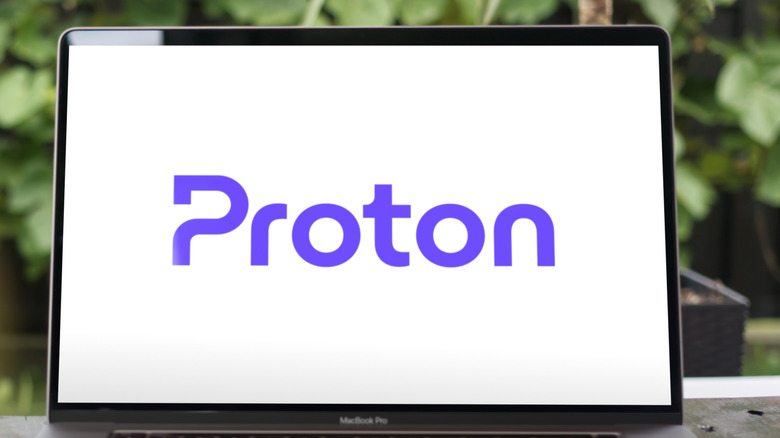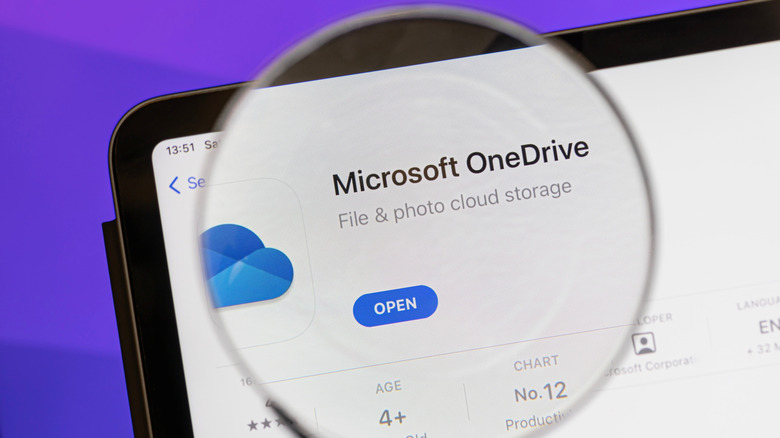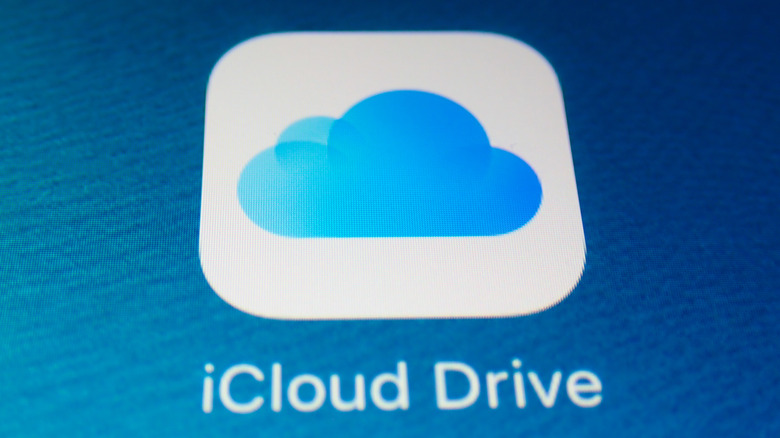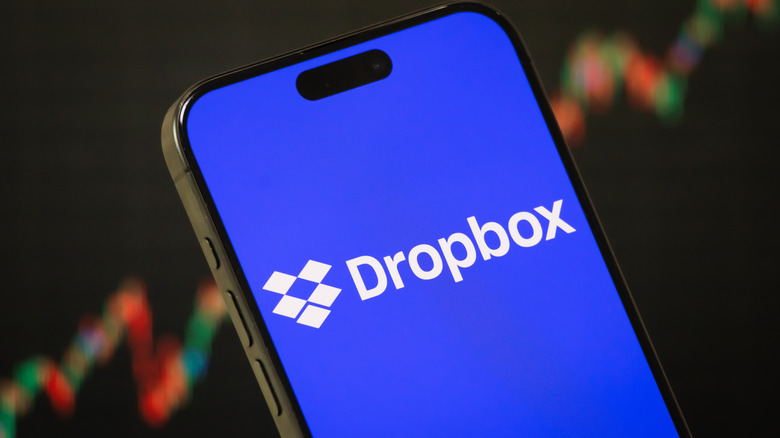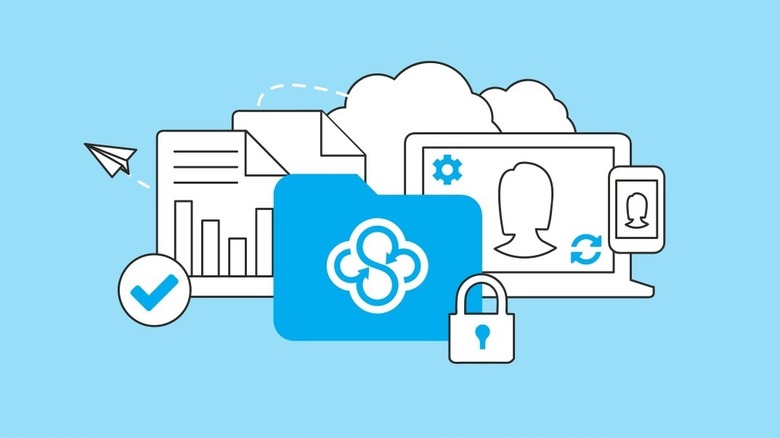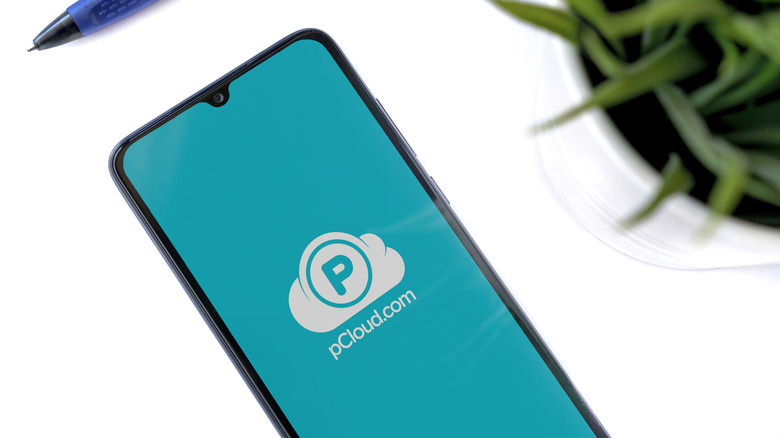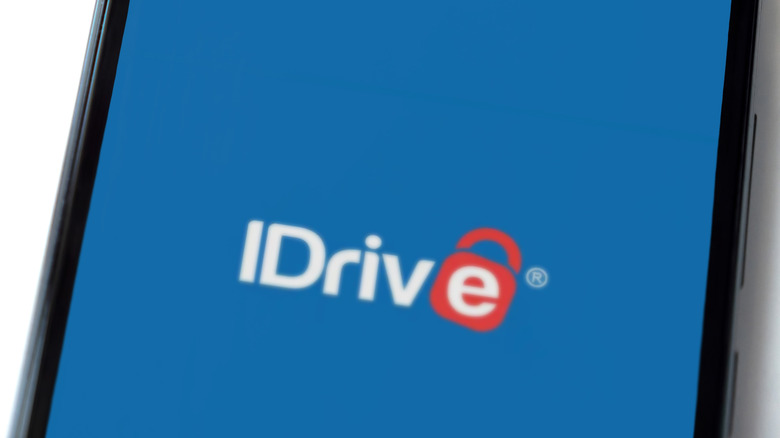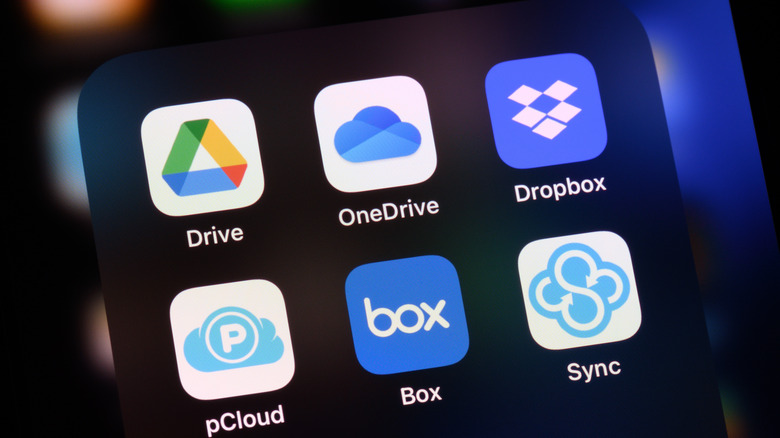9 Of The Best Cloud Storage Options For Personal Use In 2025
Our personal online lives generate a tremendous amount of data, including photos, videos, emails, documents, and more. If you stored all this data on your devices, not only could it affect your device's performance as its storage drive fills up, but if something happens to that device, you could lose everything. Cloud storage and local storage are both important, but the cloud offers extra peace of mind.
Some providers offer a certain amount of free storage, but it's shockingly easy to exceed that. For instance, if you have a Google account — and all Gmail users have one — then you automatically get 15 gigabytes (GB) of free cloud storage for your documents, photos, and other files. Apple users get 5 GB of free iCloud storage when they activate their Apple device. Even 15 GB of storage fills up fast, especially if you make a lot of videos or work with large documents and PDFs. Paid personal cloud storage options can deliver hundreds of gigabytes or even terabytes of additional storage.
There are other things cloud storage providers can offer. File syncing across devices ensures you'll always have access to the files you need. Security features such as two-factor authentication help keep your data safe. Automatic file versioning helps you to restore files in case of disaster. Plus, choosing a cloud storage provider with a good reputation and many years in business offers reassurance that you won't need to scramble to find a new storage provider years from now. With so many cloud providers offering advanced features, the difference often comes down to raw storage amounts. To help you sort through which cloud service may be for you, we've organized nine personal cloud storage providers ranked by gigabytes per dollar per month of each subscription.
9. Box
When ranking personal cloud storage apps by price, we focus on product tiers that are labeled as being for personal use. For instance, Box has a Personal Pro plan for a single user at $10 per month for 100 GB. They also have a Business Starter plan that's only $5 per month per user, but it requires a minimum purchase of three users, adding up to $15 per month for the same 100 GB. Additional users increase the Business Starter edition's monthly price even more. Therefore, we base our ranking on the Personal Pro plan, which calculates to 10 GB per dollar per month for one user.
This is by far the lowest gigabyte per dollar per month ranking on our list, but even Box's Personal Pro plan offers numerous tools for users who want business functionality, which provides some value for its higher price. For instance, secure collaboration tools enable users to work and share files with external parties. Plus, Box offers more than 1,500 integrations with popular business tools like Zoom, Microsoft Office365, and many others.
8. Proton Drive
Proton Drive's top tier for a single user, Proton Unlimited, is priced at $9.99 per month for 500 GB, giving it a score of 50.5 gigabytes per dollar per month. There's also a two-user Proton Duo edition that offers 1 TB of storage for $14.99 per month, giving it 66.71 GB per dollar per month. Either plan puts Proton Drive toward the lower end of this list. However, it delivers value in the form of more advanced security tools than many similar apps, including end-to-end encryption for the secure transfer of your files to cloud storage.
In 2024, Proton launched a Google Docs alternative called Docs in Proton Drive. This free feature aims to compete with Google Docs by offering end-to-end encryption that's backed by the stronger data privacy laws in Switzerland, where Proton is based. It includes a full feature set like that of Google Docs, enabling collaboration and more. Proton Drive offers other built-in apps like Proton Mail (with 15 addresses in Proton Unlimited and 30 addresses in Proton Duo), an ultra-fast VPN, a calendar app, and more. Plus, Proton Sentinel uses both human analysis and artificial intelligence to offer advanced account protection.
7. Microsoft OneDrive
Getting Microsoft OneDrive requires you to subscribe to some version of Microsoft 365, and the least expensive paid plan is the Basic at $19.99 per year for 200 GB of storage (100 GB of cloud storage plus 100 GB of mailbox storage), resulting in a rate of 119.76 GB per month per dollar. Stepping up to Microsoft 365 Personal costs $99.99 per year but boosts storage to 1 TB of cloud storage and 100 GB of mailbox storage, for a total of 132.05 GB per dollar per month. Either number lands OneDrive at number seven on this list. There's also a Family plan for up to six users, but each user is limited to the same 1 TB of cloud storage and 100 GB of mailbox storage.
OneDrive's free version is familiar to millions of Microsoft users, but upgrading to a paid plan gets you extra features, some of which are tied to the version of Microsoft 365 that you subscribe to. These features include technical support, ransomware protection, and, in the Personal tier, the ability to work with PCs, Macs, iPhones, iPads, and Android devices. Of course, some Microsoft users don't want OneDrive to run on their devices by default for various reasons, and there is a way to disable OneDrive on Windows devices.
6. iCloud Drive
Apple's iCloud Drive for personal users is part of the iCloud+ subscription, and the best-value iCloud+ tier is priced at $9.99 per month for 2 TB of storage. This comes in at 200.2 gigabytes per dollar per month, making it one of three subscriptions in this comparison at that price, along with Google Drive and DropBox. However, since you need an Apple product to set up an iCloud+ subscription, and only a minority of computer users have one, iCloud Drive loses the tiebreaker to identically-priced competitors to come in at number six.
For the price, though, iCloud+ is feature-rich. It includes iCloud Private Relay, which prevents websites from building a profile of you when you use Apple's Safari browser. Hide My Email anonymizes your email address. You can also get a custom email domain. HomeKit Secure Video records and analyzes motion detected on your home video system. Plus, once you've got iCloud set up on your Apple device, the iCloud for Windows app will back up your Windows devices, too. So, if you're an Apple user, you'll probably want to upgrade your storage with iCloud+.
5. Google One
Google One's best-value plan is the Premium tier, which provides 2 TB of storage for $9.99 per month. This means it also comes in at 200.2 GB per dollar per month, like iCloud Drive and DropBox. Since it's platform-agnostic, it wins a tiebreaker with Apple's iCloud Drive, but since some users may prefer not to get their personal data embedded even deeper into Google's monopolistic infrastructure, it loses the tiebreaker to DropBox to come in at number five.
However, for those who don't object to Google's omnipresence and who are familiar with Gmail, Google Photos, and other apps that use the free version of Google Drive, this may rank as a higher choice. Google One boosts your storage across all these apps. For $9.99 per month, you also get enhanced features on Meet with noise cancellation and call recording, upgraded appointment scheduling features on Calendar, and the ability to live stream your Meet video calls on YouTube to make them available to additional viewers. You'll also be able to use the Magic Eraser feature that debuted in the Pixel 7 phone, allowing one-touch editing to remove unwanted elements from your photos.
4. DropBox
DropBox's best-value plan for personal use is the Plus tier at $9.99 per month for 2 TB of storage. This means it also checks in at 200.2 GB per dollar per month, like iCloud Drive and Google One. Given that it is free from the baggage of being tied to the Google blob, it wins the tiebreaker to come in at number four. DropBox touts itself as a total workflow solution, allowing users to collaborate and share. It offers 30 days to restore deleted files and PDF editing and signing tools.
DropBox provides 256-bit AES and SSL/TLS encryption, and multi-factor authentication offers even more security. You can connect unlimited devices and enjoy top-notch syncing. Collaboration features include the ability to share DropBox links even with non-DropBox users. There are video editing tools complete with transcription and closed captioning. Also, the Plus tier comes with priority email support and an option for live chat support with technical reps. However, live phone support is reserved for DropBox's professional-level plans.
3. Sync.com
The Solo Professional plan from Sync.com is its most powerful backup, offering individuals a price of $20 per month for 6 TB of storage. This jumps up a level in our ranking with 300 GB per dollar per month. Sync leans toward being more of a team-focused app, but it could be useful for small or home office users looking to collaborate with clients or partners. Sync also emphasizes privacy, providing strong encryption and two-factor authentication, and promises not to collect or sell users' personal data. It complies with data privacy regulations across the United States, the European Union, the United Kingdom, and Canada.
Sync lets you sync securely with partners, clients, and collaborators. You can share a custom-branded portal complete with your company logo so that clients can access the files that you share with them. Centralized folders with managed permission make it easier to choose which files to share and with whom. Access your files from anywhere without losing your security and privacy protections. Sync is integrated with Windows and MacOS and offers apps for mobile devices, including iPhones, iPads, and Android devices. It also integrates with Microsoft Office 365, allowing you to open and edit documents from anywhere.
2. pCloud
The most unusual pricing structure on this list comes from pCloud, which allows for a lifetime payment for storage. Without getting into an actuarial estimate of the average user's life expectancy, let's consider that the average SaaS company lasts five to ten years and assume the higher end of that range. The pCloud Premium Plus lifetime plan costs $399 and provides 2 TB of storage. Over ten years, the Premium Plus lifetime plan would provide 600.6 gigabytes per dollar per month of storage. The Ultra plan offers even more, but only if you're willing to bet €1,190 ($1,294) on pCloud's long-term existence. That's quite a bit of money, so we reckon most value-focused users will stick to the Premium Plus plan.
The company places a high priority on data privacy. Like Proton Drive, it adheres to Switzerland's strict data privacy laws and delivers what it describes as military-grade privacy via TLS/SSL Channel Protection and 256-bit AES Encryption. You can share password-protected links with partners and collaborators, transfer your content easily from other cloud storage services, and recover files for up to 30 days. pCloud also features its own music and video player, so you can stream your media files from anywhere at any time.
1. iDrive
The least expensive personal plan from iDrive includes an annual fee of $69.95 for 5 TB of storage, which gives users 857.63 GB per dollar per month. Personal plans range up to $1,499.25 for two years and 100 TB, delivering a staggering 1,600 GB per dollar per month. This is a terrific value on its own, while features like 256-bit AES encryption and point-in-time recovery add even more value. To clear up any confusion, despite its Apple-sounding name, iDrive isn't associated in any way with Apple. It's a privately held company based in Calabasas, California.
iDrive's cloud storage syncs files across all your devices without consuming your backup limits. It's compatible with Windows, MacOS, iPads, iPhones and Android phones. iDrive retains up to 30 previous versions of your files and provides point-in-time recovery. No data is deleted unless you specifically choose to do so. iDrive performs incremental backups and can recognize and back up modified parts of files. It can back up Microsoft Office365, Google Workspace, DropBox, and Box files, offering recovery from accidental deletions and ransomware attacks. Its web-based console can manage backups even on remote computers. And a new feature called iDrive for Office lets you create and edit files in Microsoft Office apps.
Our Methodology
For this comparison, we chose plans labeled as personal plans or something similar in preference to those categorized as professional or business plans. Exceptions were made for providers like Sync.com, which labels its only personal plan as Personal Professional, and Box, which likewise has a Personal Pro plan. After filtering out professional and business plans, we chose the personal plan that provided the best value for our comparison. We then calculated the monthly cost (if the plan wasn't already priced) and used that to determine the number of gigabytes per dollar per month to determine which service offers the best value to users.


